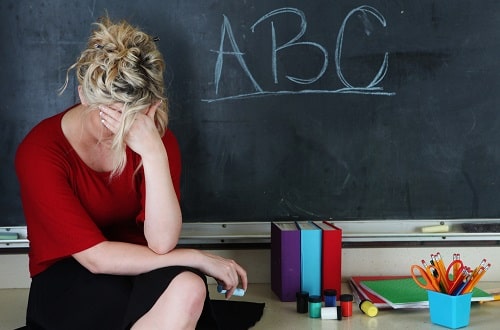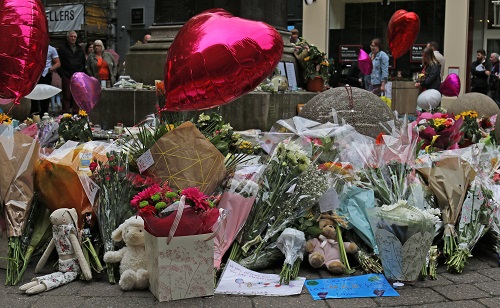It is time to end the “brinkmanship” and “get down to the real business” of reaching a global agreement on financial support to help developing countries cut emissions and cope with the effects of climate change, the United Nations’ climate chief told negotiators in Azerbaijan as the COP29 summit entered its final week.
News
‘Cut the theatrics’ and focus on solutions, UN climate chief urges COP29 delegates
A report published by the Independent High-Level Expert Group during the first week of the COP29 talks in Baku set a goal to raise $1 trillion a year in external finance by 2030, to help developing countries, excluding China, meet the climate objectives set out in the Paris Agreement.
 The COP29 climate summit in Baku, Azerbaijan has entered its final week with no agreement so far on financing the transition to net zero. Photograph: UN Climate Change/Kiara Worth
The COP29 climate summit in Baku, Azerbaijan has entered its final week with no agreement so far on financing the transition to net zero. Photograph: UN Climate Change/Kiara Worth
But after much political wrangling, the first week of negotiations ended with no agreement on a new collective quantified goal (NCQG) on financial support for developing countries beyond 2025.
As the talks entered their second and final week on 18 November, UN climate change executive secretary Simon Stiell urged decision-makers to “cut the theatrics and get down to the real business” of reaching a global financial agreement.
“I’ve been very blunt: climate finance is not charity; it is 100 per cent in every nation’s interest, to protect their economies and people from rampant climate impacts,” said Stiell. “Parties must wrap up less contentious issues early in the week, so there is enough time for the major political decisions.”
He urged government ministers who have just arrived in the Azerbaijani capital to “roll up their sleeves” and focus on tackling the most difficult issues, rather than becoming embroiled in “negotiating silos”.
“To put it another way, we can’t lose sight of the forest because we’re tussling over individual trees,” said Stiell. “We also cannot afford any outbreak of ‘you-first-ism’, where parties dig in and refuse to move on one issue until others move elsewhere. This is a recipe for going literally nowhere and could see global climate efforts go backwards at a time when we simply must move forward.”
Alongside the COP29 talks in Baku, leaders of the world’s 20 biggest economies are meeting in Rio de Janeiro for a G20 summit. In a statement released late on 18 November, G20 leaders said they “look forward to a successful NCQG outcome in Baku” and noted the “need for rapidly and substantially scaling up climate finance from billions to trillions from all sources”.
About half of the $1 trillion-a-year goal is expected to come from the private sector. In a joint letter to the G20 leaders meeting in Brazil, the We Mean Business Coalition – a non-profit organisation that works with businesses to accelerate the transition to a net-zero economy – said that businesses were playing their part, and expressed concern about the “lack of progress” on a climate finance agreement at COP29.
“Major international businesses are concerned about the lack of progress and focus in Baku,” said the letter. “Thousands of companies – representing 39 per cent of the global economy by market capitalisation – have already committed to reducing their emissions through targets aligned with climate science and are investing in clean energy technologies.
“G20 leaders can galvanise the negotiations at COP29 by recognising the urgency of the climate crisis, defining a clear and unequivocal direction towards a phase-out of unabated fossil fuels and accelerated growth of clean energy, and committing to climate finance for developing countries that will unlock multiples of private investment.”
Earlier this month, the European Union’s Copernicus Climate Change Service said it is “virtually certain” that 2024 will be the warmest year on record and the first year where the average global temperature was more than 1.5C above pre-industrial levels.
“This marks a new milestone in global temperature records and should serve as a catalyst to raise ambition for the upcoming COP29 conference,” said Samantha Burgess, deputy director of the Copernicus Climate Change Service.
NEWS

One in three teachers nearly always stressed, finds survey
By Belinda Liversedge on 14 April 2025
Teachers in State schools work in a culture which invades every aspect of their life, leaving them stressed and unable to switch off, the head of the National Education Union (NEU) has warned in the wake of a damning new survey.

Venue owners have two years to tighten up safety as Martyn’s Law passes Royal Assent
By Belinda Liversedge on 04 April 2025
Owners of sports grounds, theatres and other venues with a capacity of more than 200 should carry out a terrorism evaluation to understand their duties under a new law given Royal Assent.

Employers urged to get ready for new equality-based rights
By Belinda Liversedge on 03 April 2025
Employers should “start preparing now” for three key measures expected in Employment Rights Bill which will give women enhanced rights in the workplace, said a senior lawyer.



